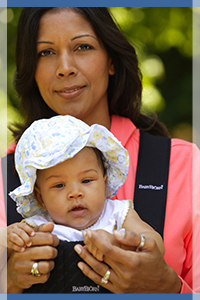Postpartum Recovery and Coping

Physical changes after childbirth
After childbirth (postpartum period), your body goes through numerous changes, some of which continue for several weeks during your postpartum period. Like pregnancy, postpartum changes are different for every woman.
To help you remember what to do and expect, we’ve made this ![]() newsletter to share the main points about how you can take care of yourself after having gone through this amazing experience.
newsletter to share the main points about how you can take care of yourself after having gone through this amazing experience.
- Shrinking of the uterus to its prepregnancy size (uterine involution) starts when the placenta is delivered and continues for about 2 months. Within 24 hours, the uterus is about the size it was at 20 weeks of pregnancy, and after 1 week, it is half the size it was when you went into labor. By 6 weeks after delivery, the uterus is nearly as small as it was before pregnancy.12
- Contractions called afterpains shrink the uterus for several days after childbirth. These sharp pains are usually not as problematic after a first childbirth as they are after later deliveries. Afterpains typically improve during the third day.
- Sore muscles (especially in the arms, neck, or jaw) are common after childbirth. This is a result of the hard work of labor and should go away in a few days. You may also have bloodshot eyes or facial bruising from vigorous pushing.
- Difficulty with urination and bowel movements (elimination problems) can occur for several days after childbirth. Drink plenty of fluids and use stool softeners, if necessary.
- Postpartum bleeding (lochia) may last for 2 to 4 weeks and can come and go for about 2 months.
- Recovery from an episiotomy or perineal tear in the area between the vagina and anus can take several weeks. You can ease the pain with home treatment, including ice, pain medicine, and sitz baths. Pain, discomfort, and numbness around the vagina are common after any vaginal birth.
- Breast engorgement is common between the third and fourth days after delivery, when the breasts begin to fill with milk. This can cause breast discomfort and swelling. Placing ice packs on your breasts, taking a hot shower, or using warm compresses may relieve the discomfort of engorgement. For more information, see the topic Breast Engorgement.
- Recovery from pelvic bone problems, such as separated pubic bones (pubic symphysis) or a fractured tailbone (coccyx), can take several months. Treatment includes ice, nonsteroidal anti-inflammatory drugs (NSAIDs), and sometimes physical therapy.
Call your health professional if you are concerned about any of your postpartum symptoms. For more information, see the When to Call a Doctor section of this topic.
Coping during the postpartum period
When you have returned home, you may find it a challenge to meet the increased demands on your limited energy and time. Take it easy on yourself. Pause for a moment, and think of what you need. Tips for coping during the postpartum period include accepting help from others, eating well and drinking plenty of fluids, getting rest whenever you can, limiting visitors, getting some time to yourself, and seeking the company of other women with new babies.
Postpartum depression
If you are having trouble with postpartum blues that last more than a few days or you think you may be developing signs of postpartum depression, call your health professional right away. For more information, see the topic Postpartum Depression. For tips on how to cope with postpartum depression, see:
Even if you have no significant postpartum problems, your health professional will want to see you for a checkup 2 to 6 weeks after delivery. This is a good time to discuss any ongoing concerns, including birth control.
Sexuality, fertility, and birth control
Avoid sexual intercourse and putting anything in the vagina (including tampons) until you have stopped bleeding. After you have stopped bleeding, avoid having sexual intercourse if it is still painful or uncomfortable. Your body needs at least 4 to 6 weeks to heal after the trauma of childbirth.
It is common to have little interest in sex for a while after childbirth. During the time when your body is recovering from childbirth and your baby has many needs, you and your partner will need to be patient with one another. Talking together is a good way to deal with the changes in your sexuality after childbirth.
Your menstrual cycle, and thus your ability to become pregnant again, will return at your body's own pace. Remember that you can ovulate and get pregnant during the month before your first menstrual period, as soon as 2 to 3 weeks after childbirth. If you do not want to become pregnant right away, use birth control even if you are breast-feeding.
- If you do not breast-feed, your menstrual periods may begin within a month or two after delivery.
- If you breast-feed full-time, your periods will probably not resume for a few months. The average among women who breast-feed exclusively is 8 months. But breast-feeding is not a dependable method of birth control. For more information, see Breast-feeding as birth control.
Most methods of birth control are safe and effective for breast-feeding mothers. Talk to your health professional about which type is best for you. For more information, see the topic Birth Control.

